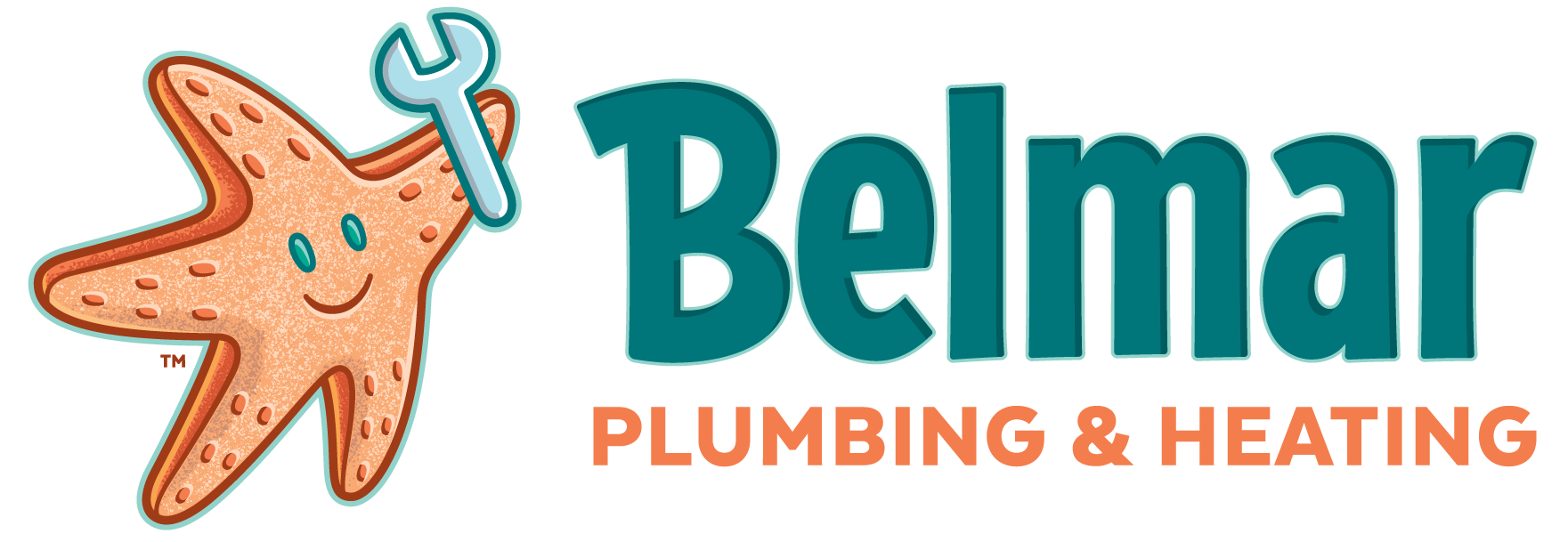Common Causes of Low Water Pressure and When to Call a Plumber
Is there anything more frustrating than turning on your faucet or shower and getting a feeble trickle of water instead of a strong, satisfying flow? Low water pressure can be a daily nuisance, making simple tasks like washing dishes, taking a shower, or watering your plants feel like a never-ending chore. While it might be tempting to blame your local water supply, the culprit is often closer to home. Let’s look at the most common causes of low water pressure and how to determine when it’s time to call a plumber for assistance.
Common Causes of Low Water Pressure
Before you pick up the phone to call a plumber, it’s essential to understand the potential culprits behind low water pressure. By identifying the root cause, you can sometimes resolve the issue yourself or at least provide valuable information to your plumber. Here are some common causes of low water pressure:
- Corroded Pipes: Over time, pipes can corrode or accumulate mineral deposits inside them. This can restrict the flow of water, leading to reduced water pressure. If you have older galvanized steel pipes, they are particularly prone to corrosion. Similarly, hard water, which contains high levels of minerals like calcium and magnesium, can cause mineral buildup in your pipes, reducing their diameter and causing a decrease in water pressure.
- Pressure Regulator Issues: Most homes have a pressure regulator installed to control the incoming water pressure from the municipal supply. If this regulator is malfunctioning or set too low, it can result in decreased water pressure throughout your home. A plumber can inspect and adjust the pressure regulator to ensure it’s working correctly.
- Shut-Off Valves Not Fully Open: Sometimes, the issue may be as simple as a partially closed shut-off valve. Check the valves near your plumbing fixtures and make sure they are fully open.
- Water Meter Valve: The main water meter valve controls the flow of water into your home. If this valve is not fully open, it can limit the amount of water entering your plumbing system and result in low water pressure.
- Clogged Plumbing Fixtures: Sometimes, the issue may not be with your plumbing system but with individual fixtures. Faucets and showerheads can become clogged with sediment and mineral deposits over time, reducing water flow. Additionally, faulty fixtures or worn-out washers and gaskets can also cause low water pressure.
- Municipal Water Supply Problems: Occasionally, low water pressure may be due to issues with the municipal water supply. Factors like high demand during peak usage times, water main breaks, or maintenance work in your area can temporarily reduce water pressure. In such cases, the problem typically resolves itself once the municipal supply is back to normal.
- Flow Restrictions: Certain plumbing fixtures, like water-saving showerheads and faucets, are designed to restrict water flow to conserve water. While this is environmentally friendly, it can lead to lower water pressure.
- Water Heater Issues: If your water heater develops problems, it can lead to low water pressure. Sediment buildup or a malfunctioning pressure relief valve can restrict water flow. Additionally, an improperly sized water heater may struggle to meet hot water demands, resulting in lower overall water pressure. A professional plumber can diagnose the problem and perform a water heater repair to restore optimal water pressure in your home.
When to Call a Plumber
Now that we’ve identified some common causes of low water pressure, it’s essential to know when it’s time to call a plumber for help. Give our plumbers a call if any of the following ring true for you:
- Consistently Low Pressure: If you’re experiencing persistently low water pressure throughout your home, even after trying some DIY fixes, it’s time to consult a professional plumber.
- Sudden Pressure Drop: A sudden, significant drop in water pressure can be a sign of a serious issue, such as a burst pipe or a major leak. In this case, don’t hesitate to call a plumber immediately for a water line repair.
- Visible Leaks: If you notice water leaks anywhere in your home, don’t delay in calling a plumber. Not only will they address the leak, but they will also assess and address any potential impact on your water pressure.
- Unexplained Water Bills: If your water bills have skyrocketed, it may indicate a hidden leak that’s causing low water pressure. A plumber can help identify and fix the issue, potentially saving you money in the long run.
- DIY Efforts Fail: If your attempts to resolve low water pressure with simple fixes like cleaning faucet aerators or showerheads prove ineffective, it’s time to bring in a professional who can diagnose and address the underlying problem.
We Can Fix Your Low Water Pressure Problem!
If you’re experiencing low water pressure and suspect it’s time to call a plumber, call on Belmar Plumbing & Heating. Our team of experienced plumbers specializes in diagnosing and resolving plumbing issues, including low water pressure. We use state-of-the-art equipment and techniques to pinpoint the root cause of the problem and provide efficient, long-lasting solutions.
Get in touch with our team today to schedule a service visit. Our dedicated team is committed to ensuring your home’s plumbing system operates at its best, providing you with the water pressure you deserve.
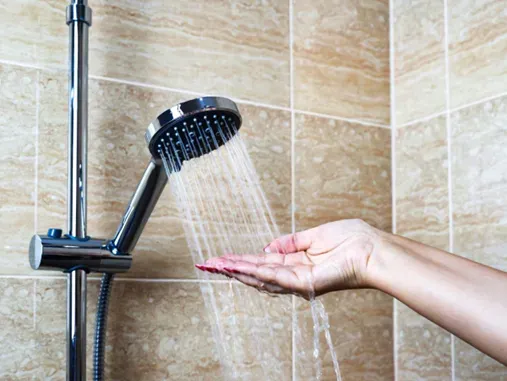
Are you looking to enhance your home’s energy efficiency while enjoying a seemingly endless supply of hot water? A tankless water heater could be the answer you’ve been searching for. These innovative devices have gained popularity for their compact design, energy-efficient capabilities, and ability to provide hot water without the need for a storage tank. While this may all sound amazing, how do you know if a tankless water heater is truly right for your household? Below, you will find everything you need to know in order to make a well-informed decision. The Top Benefits of Tankless Water Heaters Before investing in a new water heater installation, take a look at the incredible benefits of a tankless device: Energy Efficiency: One of the primary benefits of tankless water heaters is their exceptional energy efficiency. Unlike traditional tank water heaters that constantly heat and reheat a large volume of water, tankless models only activate when hot water is needed. This on-demand heating significantly reduces energy consumption, leading to lower utility bills and a smaller environmental footprint. Endless Hot Water Supply: Say goodbye to cold showers and waiting for the water to heat up. Tankless water heaters provide an endless supply of hot water, ensuring that you never run out, no matter how long your morning routine or how many family members need to shower consecutively. This feature is especially beneficial for larger households where demand for hot water is consistently high. Space-Saving Design: Tankless water heaters are known for their compact and space-saving design. Storage tank water heaters can take up a substantial amount of space in your utility room or basement. In contrast, tankless models are typically wall-mounted, freeing up valuable space for other uses. Longer Lifespan: Tankless water heaters generally have a longer lifespan compared to traditional tank models. While traditional heaters may last around 10-15 years, tankless units can endure for 20 years or more with proper maintenance. This longevity can translate to cost savings in the long run, as homeowners won’t need to replace their water heaters as frequently. Reduced Risk of Water Damage: Traditional water heaters with storage tanks are susceptible to leaks, which can lead to significant water damage. A tankless water heater installation eliminates this risk as these units do not store large volumes of water. This feature not only protects your home but also saves you from the potential expenses and headaches associated with water damage repairs. Temperature Control: Tankless water heaters offer precise temperature control, allowing you to set the desired hot water temperature with accuracy. This not only enhances comfort but also helps prevent scalding accidents, which is especially important for households with children or elderly members. Upfront Costs and Installation Considerations While the benefits of tankless water heaters are compelling, it’s essential to consider the upfront costs. Tankless units tend to have a higher initial cost than traditional water heaters. However, the potential energy savings over time can offset this initial investment. Installation is a critical factor as well. Switching from a traditional system to a tankless one may require modifications to your home’s plumbing and gas lines. It’s advisable to consult with a professional plumber to assess the feasibility and cost-effectiveness of such a transition. Is Installing a Tankless Water Heater Right for You? The decision to opt for a tankless water heater hinges on various factors, including your household’s hot water usage, available space, and budget. If you prioritize energy efficiency, unlimited hot water, and a compact design, a tankless system may be an ideal fit for your home. Save Money With a Tankless Water Heater Today If you’re considering the switch to a tankless water heater or need expert advice on your existing system, Belmar Plumbing & Heating is here to help. Our experienced technicians can assess your home’s specific needs and recommend the most suitable water heating solution to keep your utility costs low. Contact our water heater repair and installation experts today to schedule a service that aligns with your comfort and efficiency goals.

Your home is your sanctuary, a place where you create cherished memories and build a life. But what happens when the hidden infrastructure that keeps your home running smoothly starts to show its age? We’re talking about your plumbing system. Over time, even the most durable pipes can develop issues that affect your daily life and your home’s value. Since old plumbing systems can cause a host of issues, from reduced water pressure and rust-colored water to pipe leaks and more, it’s helpful to familiarize yourself with the signs it’s time to repipe your home. 7 Signs It’s Time to Repipe Just like any other part of your home, your pipes age over time. The materials pipes are made from, the quality of installation, and environmental factors can all influence how long they last. The main types of pipes used in residential plumbing include copper, galvanized steel, PVC, PEX, and cast iron, each with its own approximate lifespan. Despite the differences in expected lifespans, the issues that occur when pipes start reaching the end of their service lives are the same. Here’s a glimpse into the most common signs your home needs to be repiped: Pipe Corrosion: One of the most common reasons to repipe your home is corrosion. Over time, metal pipes, such as iron or galvanized steel, can corrode, leading to leaks, reduced water pressure, and even rust-colored water. This not only affects your plumbing system’s efficiency but also the quality of your drinking water. Copper pipes are a great alternative to reduce corrosion, and they have a longer lifespan. Low Water Pressure: A sudden drop in water pressure can be a clear indicator that something is wrong with your plumbing system. Old pipes can accumulate mineral deposits and rust, restricting water flow. Repiping your home with new pipes will help restore optimal water pressure, ensuring a smooth and efficient water supply. Frequent Pipe Leaks: If you find yourself calling a plumber in Freehold, NJ, or the surrounding area to fix pipe leaks more often than you’d like, it’s a sign that your plumbing system may be on its last legs. Frequent pipe leaks can lead to water damage and costly repairs. Repiping your home will provide a long-term solution, saving you both time and money in the long run. Water Temperature Issues: Inconsistent water temperature can be frustrating. Old pipes may struggle to maintain a steady temperature, leading to sudden temperature fluctuations during showers or while washing dishes. Repiping your home with well-insulated pipes can help maintain a consistent and comfortable water temperature. Strange Smells or Tastes: If your water has an odd odor or taste, it may be due to contaminants in your pipes or the presence of harmful substances like lead. Repiping your home with safe and modern materials can improve the quality of your drinking water, ensuring it’s clean and odor-free. Polybutylene Pipes: Homes built between the late 1970s and mid-1990s may have polybutylene pipes. These pipes are known to be problematic and prone to breakage. If you have polybutylene pipes, it’s advisable to repipe your house with more reliable materials to avoid potential water damage and leaks. Age of Pipes: If your plumbing system is over 50 years old, it’s probably time to consider repiping. Even if your pipes appear to be in decent condition, the wear and tear on older materials can pose a significant risk. Modern materials are more durable and resistant to the common issues that affect aging pipes. Ready to Repipe Your Home? Call Belmar Plumbing & Heating! The plumbing system is the lifeblood of your home, and when it’s time to consider repiping, you want a reliable and experienced team to help you through the process. Don’t wait until those old pipes cause extensive damage or disrupt your daily life. Contact Belmar Plumbing & Heating to schedule a consultation and ensure the continued health and longevity of your home’s plumbing. We can help you with water line and sewer line replacements, effectively protecting your house from severe damage.

When the cold season arrives, one of the most critical decisions a homeowner faces is selecting the right heating system for their home. Your heater can make a significant difference in your comfort, energy efficiency, and monthly bills. With various options available, it’s essential to make an informed decision that suits your specific needs and preferences. Keep reading to learn more about the different types of home heating systems and the factors to consider before choosing a new heater. Types of Home Heating Systems In order to find the best heating system for your household’s needs, it’s helpful to familiarize yourself with the most common types of heaters. Based on your specific preferences and heating requirements, you may find that one type of heating system works best for you, even if it’s not the same type of heater your neighbors have. Forced Air Heating: One of the most common home heating systems is the forced air heating system. It operates by heating air in a furnace or heat exchanger and then distributing it through a network of ducts and vents throughout your home. This heated air circulates, keeping your living spaces warm and comfortable. The main advantage of forced air heating is its ability to heat large areas quickly. It also has the flexibility to combine heating and cooling in one system. To ensure high efficiency and low energy bills, it’s crucial to select a forced air heating system with a high Annual Fuel Utilization Efficiency (AFUE) rating. Gas furnaces are a popular choice for this type of system due to their efficiency in converting fuel into heated air. Hydronic Heating System: Hydronic heating systems use heated water to provide consistent warmth throughout your home. The water is circulated through pipes and radiators for even heat distribution and quiet operation. These systems are well-known for their energy efficiency. One of the significant advantages of a hydronic heating system installation is its versatility. You can use various heat sources, including natural gas, oil, or even renewable energy sources like solar panels, to operate the system. Mini-Split Systems: Ductless mini-split systems offer an excellent solution for heating and cooling individual rooms or zones within your home. They consist of an outdoor unit and one or more indoor air handlers. They are highly energy-efficient because they transfer heat from the air outside to the inside, even in cold weather. Geothermal Heat Pumps: For homeowners seeking an energy-efficient and eco-friendly heating system, geothermal heat pumps are an excellent choice. They harness the stable temperature of the ground or water to heat and cool your home. Space Heaters: Space heaters are portable heating devices that are ideal for supplementing the heating in specific areas of your home. They are simple to use and provide immediate warmth to a room. However, space heaters are not a primary heating solution and are best used for temporary heating needs or in small spaces. They can be less energy-efficient than central heating systems if used extensively. Factors to Consider Before Buying a New Heater Now that we’ve explored the various types of home heating systems, let’s discuss some essential factors to consider when choosing the best heating system for your home: Energy Efficiency: Look for a heating system with a high-efficiency rating to save on energy bills. Consider systems with high AFUE ratings for furnaces or COP (Coefficient of Performance) for heat pumps. Size of Your Home: Ensure the heating system you choose is appropriately sized for your home. An undersized system won’t effectively heat your space, while an oversized one may lead to inefficiency and increased energy costs. Fuel Source: Consider the availability and cost of the fuel source in your area. Natural gas, electricity, oil, and renewable energy sources all have different implications for your heating system. Maintenance and Service: Research the maintenance requirements and availability of service providers for the heating system you choose. Regular maintenance is essential to ensure your system operates efficiently. Climate: The climate in your region plays a significant role in the choice of heating system. Some systems perform better in extreme cold, while others are more suited to milder climates. Enhance Your Home’s Comfort With a New Heater Choosing the right heating system for your home impacts your comfort and energy bills. For this reason, you don’t want to make the decision on a whim. If you’ve done your research and are interested in a boiler installation, reach out to the experts at Belmar Plumbing & Heating for valuable information. Once you’ve decided on a unit, we can help you install it with precision and provide ongoing maintenance to keep it running efficiently. Contact us today to ensure your home is equipped with the best heating system for your needs. We’ll help you stay warm and comfortable all winter long while keeping your energy bills in check.
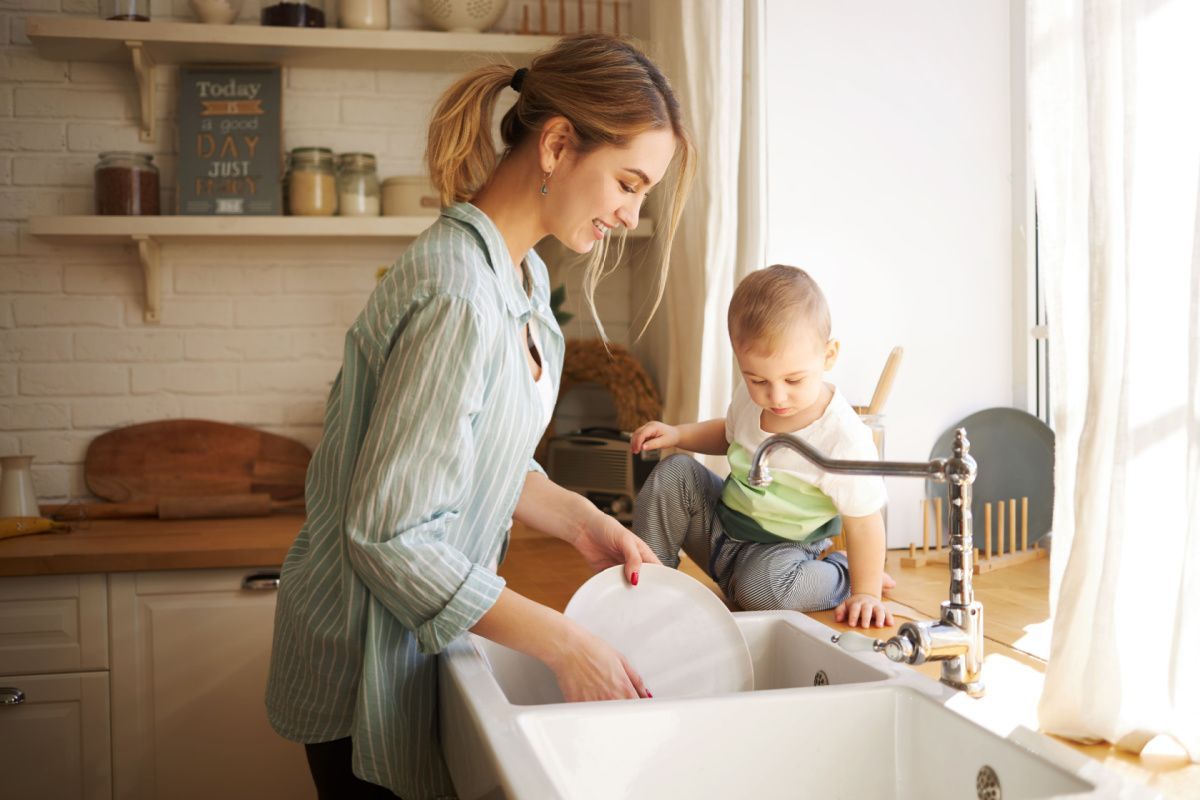
A home’s plumbing system is a vital and complex network of pipes and fixtures that we often take for granted. Until, of course, it begins to show signs of trouble. One of the most common issues homeowners face is drain clogs. While minor clogs can often be resolved with DIY methods or drain cleaners, frequently clogged drains can be a cause for concern. In such cases, it may be time to call in the professionals. What Causes Drain Clogs? Whether it’s a slow-draining sink, foul odors emanating from the drain, or water pooling in your shower, these issues can be both frustrating and unsanitary. Typically, clogs are caused by a buildup of various materials in your pipes. Common culprits include food particles, hair, soap scum, and even foreign objects that accidentally find their way into the drain. Regardless of how the blockage developed, it’s important to address the problem immediately. You can do so with do-it-yourself options or professional assistance. DIY Methods for Minor Clogs For minor clogs, DIY methods can often provide a quick and cost-effective solution. Many homeowners turn to chemical drain cleaners, plungers, or drain snakes to tackle these issues. These methods can work well for occasional clogs and may provide temporary relief. However, it’s important to exercise caution when using chemical drain cleaners, as they can damage your pipes over time and harm the environment. When to Call a Professional While DIY methods can work wonders for minor clogs, persistent drain clogs are a different story altogether. Here are some signs you need a professional drain cleaning service: Frequent Drain Clogs: If you find yourself dealing with drain clogs regularly, it’s a clear indication that there may be an underlying issue with your plumbing system. Frequent drain clogs can point to problems further down the line. Multiple Clogged Drains: When multiple drains in your home are clogged simultaneously, it’s a strong signal that the problem extends beyond individual fixtures. Several slow-draining sinks and drains suggest a potential issue with the main sewer line. Foul Odors: Unpleasant odors coming from your drains can be a sign of stagnant water and trapped debris in your pipes, which can lead to more severe clogs. Water Backing Up: Perhaps the most alarming sign is when wastewater starts backing up into your sinks, tubs, or toilets. This is a clear indication that your plumbing system is in distress and needs immediate attention. Why Professional Assistance Matters Professional plumbers are equipped with the expertise and specialized tools required to diagnose and resolve stubborn drain clogs and more complex plumbing issues. The experts at Belmar Plumbing & Heating can perform a thorough inspection of your plumbing system to identify the root cause of the problem. Additionally, we have access to advanced drain cleaning services that can effectively remove blockages without causing harm to your pipes. In some cases, persistent clogs may be a symptom of more significant problems, such as a damaged sewer line. Our professional plumbers can perform a sewer line repair to get your plumbing system back in top condition. Turn to Belmar Plumbing for Expert Solutions When it comes to dealing with persistent drain clogs or any plumbing-related issues, it’s essential to partner with a reputable plumbing company like Belmar Plumbing & Heating. With our state-of-the-art equipment and commitment to customer satisfaction, you can trust us to tackle even the most stubborn clogs and keep your plumbing system flowing smoothly. Contact us today to schedule a plumbing service.
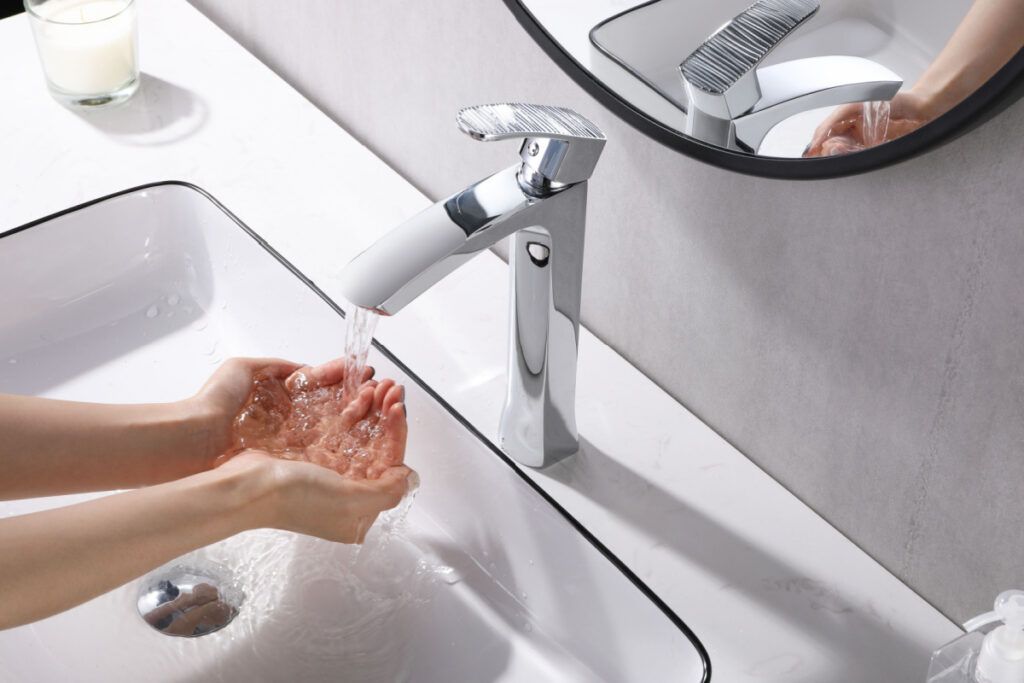
Clogged drains are a common household issue that can be frustrating and time-consuming to deal with. A clogged drain can lead to slow-draining water, unpleasant odors, and even damage to your plumbing system if left unattended. Fortunately, there are several steps you can take to clear a clogged drain before it becomes a major problem. Today, we’ll walk you through the process of clearing a clogged drain and provide helpful tips to prevent future clogs. And if your DIY efforts don’t quite cut it, remember that Belmar Plumbing & Heating offers professional drain cleaning services in Monmouth County, NJ, to get your pipes flowing smoothly again. Step 1: Assess the Clog Before you can clear a clogged drain, it’s important to determine the severity of the clog. If you notice water slowly draining from your bathroom sink or kitchen sinks, it’s likely a minor clog that can be easily fixed. However, if multiple fixtures are affected or if you hear gurgling sounds when running water, it’s best to call a professional for drain cleaning, as these may indicate a more serious issue. Step 2: Use a Plunger A plunger is an effective tool for breaking up clogs in your drain pipes. To use a plunger, first, plug the tub or basin overflow hole. Next, ensure there’s a few inches of water in the sink or tub, and cover the drain with the plunger cup. Then, vigorously pump the plunger up and down, maintaining the seal. After several pumps, lift the plunger to see if the water drains quickly. If not, repeat the process until the clog is dislodged. Step 3: Try the Baking Soda and Vinegar Method To clean a clogged drain using household items, try the baking soda and vinegar method. Start by pouring a cup of baking soda down the drain, followed by a cup of vinegar. The chemical reaction between the two substances will help break up the clog. Cover the drain, and let it sit for about 15 minutes, then pour several cups of boiling water down the drain to flush away the clog. Step 4: Snake the Drain If plunging and the baking soda-vinegar method don’t work, you may need to snake the drain. Drain snakes can be purchased at most hardware stores and are designed to reach deep into your pipes to break up stubborn clogs. To snake the drain, insert the end of the snake into the drain opening and turn the handle clockwise while pushing it further in. When you feel resistance, it means you’ve reached the clog. Continue turning the handle to break up the clog, then carefully pull the snake out and run hot water to flush away any remaining debris. Step 5: Turn to the Professionals for Drain Cleaning For severe clogs or recurring issues, consider hydro jet drain cleaning. This professional service uses high-pressure water to blast away clogs and clean your pipes thoroughly. Belmar Plumbing & Heating offers hydro jet drain cleaning to help clear even the toughest clogs and keep your plumbing system functioning properly. Preventing Future Clogs While it’s helpful to know how to clear a clogged drain, it’s best to be proactive. You can prevent future clogged drains by being mindful of what goes down your drain. Avoid pouring grease or oil down your kitchen sink, and use a hair catcher in your bathroom sink and shower drain. Regularly clean your drain stoppers and run hot water after each use to help flush away debris. Keep Your Drains Flowing With Expert Solutions From Belmar Plumbing & Heating While these steps can help you clear a clogged drain, sometimes professional assistance is necessary. If you’re struggling to unclog a drain or want to ensure your plumbing system is in top shape, schedule a service with Belmar Plumbing & Heating. Our expert technicians provide drain cleaning services in Monmouth County, NJ, and beyond to help keep your pipes flowing smoothly and prevent costly damage. Contact us today to schedule an appointment.
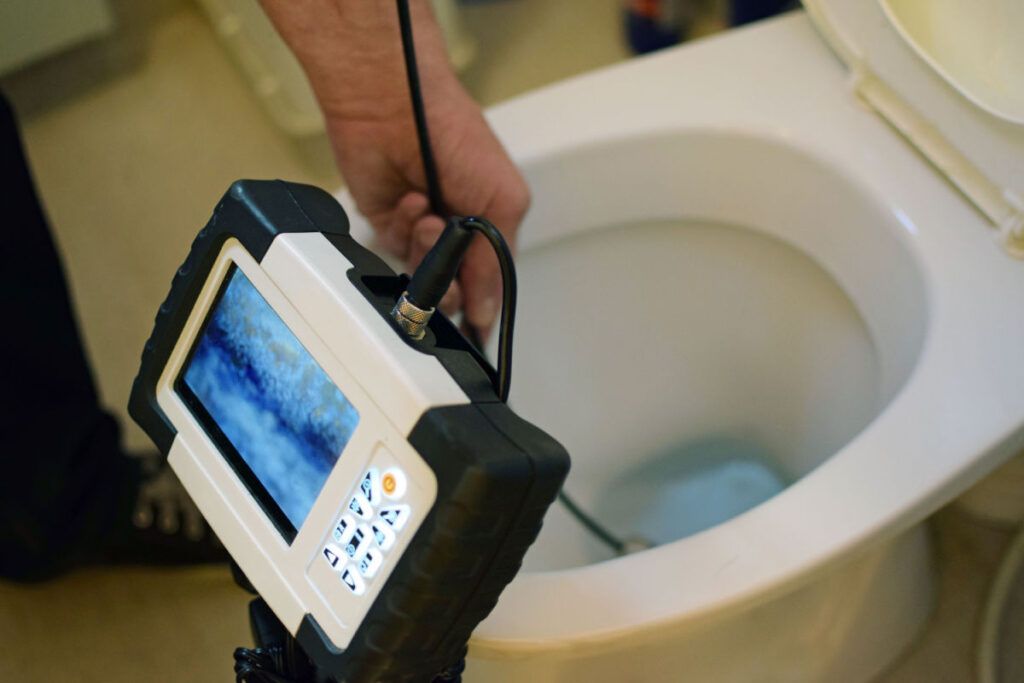
Sewer lines are an essential part of our homes, responsible for carrying waste and sewage away from our living spaces. Unfortunately, it’s easy to overlook them until something goes wrong. When sewer problems do arise, they can cause significant damage and cost thousands of dollars to fix. That’s why it’s important to know the warning signs before they become larger issues. Today, we’ll help you identify signs you have a sewer line problem. Slow Drains A sluggish drain is one of the first signs of trouble in your sewer line. If your sinks or tubs take longer to empty than usual, you may have a clogged sewer line. In some cases, the clog may be in the drain itself — in this case, using a plunger or drain snake should easily resolve the problem. However, if it persists, the blockage could be located further down the line. You will need a professional plumber to address the problematic sewer line clog right away. Sewer Backup A sewage backup is a clear indication of a sewer line problem. If you notice sewage coming up from your bathtub, toilet, or sink, your sewer line could be blocked. Sewer backups can quickly lead to significant damage in your home — not to mention they’re hazardous to your family’s health and are quite unsightly. Unpleasant Odors A persistent sewer smell in your home could be related to problems with your sewer line. Sewage has a distinct odor that should not be present in your living space. An odd smell could be the result of a clog somewhere far in the sewage line or a crack in the pipe itself. If you detect an unpleasant smell in your yard, it could also be a sign of a broken sewer line. Tree Root Intrusion While you can’t see tree roots growing into your sewer lines, it’s a common problem affecting households across New Jersey, so you need to know that your sewer line problems may be the result of these pesky tree roots. Roots can grow into pipes and cause significant blockages or even break the line. If you have large trees in your yard, regular inspections may be necessary to catch any root intrusion early. Soggy Spots in Your Yard Older homes, in particular, may have sewer lines made of materials that are susceptible to cracking and breaking. If you notice unexplained puddles in your yard or especially lush grass even though you haven’t changed your maintenance routine, there may be a crack in your sewer line. You will need to have your sewer system repaired immediately to prevent damage to your landscaping and to protect your family’s health. Protect Your Home With Routine Video Inspections Ignoring sewer line problems can lead to more expensive repairs down the line. Unwelcome expenses like water remediation due to backups can have a serious impact on your household’s budget. One of the most accurate ways to identify sewer line problems is through a video inspection. A sewer repair contractor can send a small camera into your sewer line, providing a real-time view of any obstructions or repairs needed. Our team will help you stay on top of problems to prevent major expenses. Are These Red Flags Haunting You? Call Belmar Plumbing & Heating! Sewer problems range from small annoyances like slow drains to substantial issues like broken sewer lines. Therefore, paying attention to the warning signs and contacting a licensed plumber as soon as possible is essential. If you notice any of these red flags, you should immediately schedule an inspection with our team. Belmar Plumbing & Heating offers sewer line replacement services and can help you identify and solve any sewer problems, saving you the time and money associated with costly damages. Don’t live with sewer line problems; contact us today!

One of the most common problems homeowners face with their water heaters is a leak at the bottom of the tank. If you’re experiencing this issue, you may be wondering if it’s normal or if you need to act quickly to prevent water damage in your home. First things first, it’s important to understand that a leaking hot water heater is never normal. While it may not always be a cause for immediate concern, any sign of a leak should be addressed promptly to avoid more significant issues down the line. Now, let’s look at why your water heater may be leaking from the bottom and how you can resolve the problem. Is Your T&P Valve the Problem? If your water heater is leaking from the bottom, it may be a sign that the temperature and pressure relief (T&P) valve is faulty. The T&P valve prevents the water tank from exploding when there is excess pressure inside it. For instance, when too much heat builds up in the water heater, the pressure within the tank increases. The T&P valve relieves the excess pressure using a discharge tube. Over time, the pressure valve can become worn down and allow water to drip or leak out. If the temperature or pressure rises too much and the T&P valve is not functioning correctly, it will gradually cause the tank to leak at the bottom. If the discharge tube coming from the pressure valve is wet, this likely means the valve is faulty. You will need to have a hot water heater repair professional replace it. Make Sure to Check the Drain Valve Another reason your hot water heater might be leaking at the bottom is that the drain valve is damaged or faulty. The drain valve is a small valve located at the bottom of the tank that’s typically used to flush out sediment, debris, and other residue. If the drain valve becomes loose or damaged, it can cause the water heater to leak. You may be able to resolve the problem by tightening the valve. Turn the handle or knob and then wait to see if the dripping stops. If it is still leaking, the valve should be replaced. The Tank Itself May Be the Issue If the leak persists even after you have checked the T&P and drain valves, then the source of the problem is the hot water tank itself. The cause might be due to corrosion or rust caused by prolonged use or regular exposure to hard water. Regardless of the cause, fixing a leaking tank yourself is not recommended. It’s best to contact a certified plumber like Belmar Plumbing & Heating. We will help you know if it’s time to replace the entire system. Seek Assistance Immediately Regardless of the cause, a leaking hot water tank can lead to serious water damage in your home. If you notice that your hot water heater is leaking, turn off the water supply immediately and call a plumber. Our team has the knowledge and expertise to diagnose the problem and recommend the best solution, whether that includes repairing or replacing the hot water tank. Trust Belmar Plumbing & Heating to Fix Your Leaking Water Heater A leaking hot water heater is never normal and should be addressed promptly to avoid water damage in your home. Whether it’s related to the T&P valve, drain valve, or the tank itself, it’s crucial to contact hot water heater replacement professionals right away to fix the problem. A qualified plumber will check the entire system, locate the leak, and provide a remedy to fix the issue. If you need help diagnosing your water heater’s faulty performance, call Belmar Plumbing & Heating today! We’ll get to the bottom of the issue quickly, so you can get back to enjoying the benefits of hot water hassle-free.
